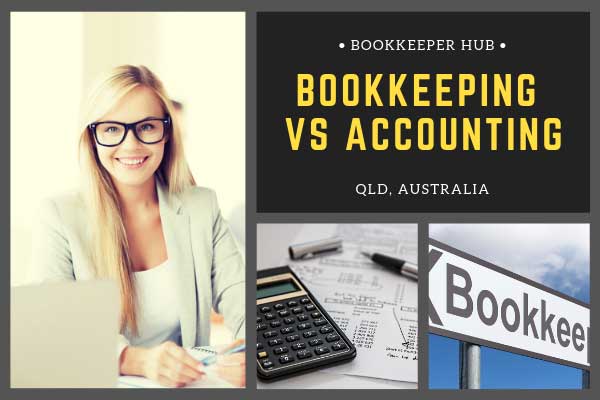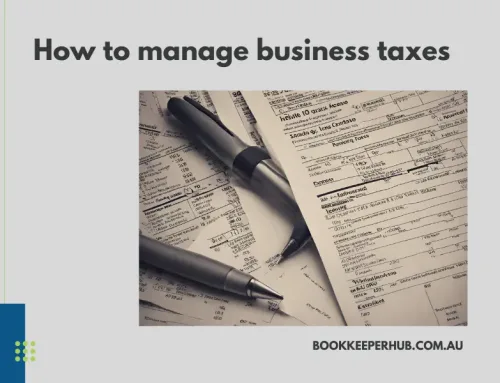Bookkeeping and accounting are both crucial business functions, but they are not the same. There are key differences between bookkeepers and accountants. This guide will explore the main differences and provide you with all the information you need about bookkeeping vs accounting.
What is bookkeeping?
Bookkeeping is predominantly concerned with recording financial transactions and ensuring information is up to date. If you have a bookkeeper working at your business, for example, they will note down transactions on a daily or weekly basis to ensure you have a chronological record of incoming and outgoing payments. Bookkeepers are responsible for looking after the books and preparing information for accountants. The principal objective of bookkeeping is to keep a record of transactions in a logical, organised manner.
What is accounting?
Accounting involves using the information provided by bookkeepers to analyse, evaluate, summarise and interpret the financial situation of an individual or a business. Accountants take this data, and use their expertise and skills to create reports and communications that provide the client with accurate information about their financial status. Accountants can provide tailored advice based on a client’s finances, and they can also provide services such as preparing and filing tax returns. In this case, an accountant will use financial records and accounts to work out how much the client owes in tax, prepare and fill in the return, and arrange for payment to be made on time.
The similarities between bookkeeping and accounting
To an untrained eye, it may seem like bookkeeping and accounting are very similar. While both deal with financial transactions and numbers, there are differences. In some cases, the line between bookkeeping and accounting may become blurred. Many businesses employ a bookkeeper who tends to do more than simply record payments and update the books. Likewise, accountants are sometimes involved in looking after the accounts, as well as analysing the information and data provided by a client.
Bookkeepers and accountants both have skills that enable them to work with figures, but accountants have more advanced training and additional qualifications that enable them to offer a more diverse range of services.
The main differences between bookkeeping and accounting
Accounting is a much broader field than bookkeeping. Accountants have experience in bookkeeping, but they have a range of other additional skills, which enables them to analyse, evaluate and interpret financial data. They can create reports, offer advice and recommendations, prepare tax returns and provide a consulting service, whereas bookkeeping is concerned primarily with recording data. Bookkeepers essentially prepare the information and lay the foundations for accountants to take the next step.
When you hire an accountant, you expect more than well-presented, well-organised books. An accountant has the skills to use the data provided by bookkeepers to benefit your business and provide you with a spectrum of services, which may include completing tax returns and offering advice about lowering expenses and maximising profits.
The benefits of employing bookkeepers and accountants
In business, there’s nothing more crucial than making money. To stay afloat and achieve goals and objectives, you have to turn over profits. If you don’t have a firm grip on your finances, there’s every chance that you could encounter unexpected obstacles or run into cash flow issues. Hiring a bookkeeper will ensure that your books are in order from day one.
Once you have financial information, it’s wise to use this data to drive your business forward. Whether you’re self-employed and you work alone, or you have a business that employs hundreds of people, an accountant can provide you with an array of services. For many individuals and business owners, getting ready for tax deadlines can be stressful. It’s hugely beneficial to have your books in order as the deadline looms so that your accountant can analyse the data and work out how much tax you have to pay.
Hiring an accountant to take care of your taxes for you eliminates stress and enables you to devote your time to the core elements of running your business. There’s also a lower risk of making mistakes or getting the calculation wrong. If you’re not experienced in accounting, you’ve never filed a tax return before, or you’re unsure about what kinds of expenses you can claim, for example, it’s hugely beneficial to employ an accountant.
If you make errors, or you miss deadlines, you may be fined.
Another benefit of working with an accountant is that it gives you and your employees the opportunity to focus on the tasks that match your skill sets. You can continue to tick off the jobs on your list without worrying about your finances.
Modern-day bookkeeping
As with most aspects of business, the art of bookkeeping has been impacted by the rise of technology. While the vast majority of businesses used to employ a bookkeeper or utilise traditional bookkeeping techniques, today, many use software programmes. Bookkeeping software like Xero bookkeeping enables business owners to take advantage of automated features, which reduce the time it takes to record transactions and lower running costs.
If you utilise software, you don’t have to employ a bookkeeper, and this could have a significant impact on your operating expenses. With bookkeeping software, you can also access real-time data and you can customise the settings to suit your business. You can choose how you want to manage your books, and you’re not limited to a rigid, universal system.
One of the most significant recent developments in the world of technology is the smartphone. Today, business owners want access to up to date information at any time of the day, regardless of where they are. With this in mind, modern-day bookkeepers and accountants create records and reports that are available online at the touch of a button.
If you’re not familiar with either bookkeeping or accounting, you may assume that they are the same thing. There are similarities, but there are also several crucial differences. Bookkeeping is focused on recording information and ensuring the books are up to date, while accounting offers deeper interpretation and analysis of financial information. The work undertaken by bookkeepers lays the foundations for accountants, enabling them to prepare reports, file tax returns and offer insightful, tailored financial advice.






